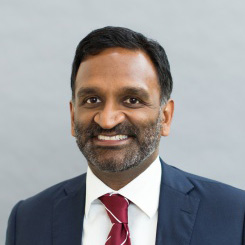
It’s an even bigger thrill when you talk with someone you truly admire, which was certainly the case when I met Supreme Court Justice Antonin Scalia at the annual Istituto Bruno Leoni lecture in Turin in 2013. My friends at IBL kindly invited me to the reception and dinner following the lecture, and there I was as the only other American chatting with Justice and Mrs. Scalia.
We talked about his old friend and poker buddy Walter Berns (whose health was ailing, he told me with real concern in his face and voice), the work of the Acton Institute in Rome, and “so-called” social justice, as he put it. I tried to get his views on St. Thomas Aquinas and natural law, but he somewhat facetiously said those were “above his pay grade.”
I say “somewhat facetiously” because, just last month at the Dominican House of Studies in Washington, I had the good fortune to hear his opinions on that very subject. It takes some guts to tell a room full of Dominicans that the Angelic Doctor was wrong, but that’s just what Scalia did in defending his “textualist” approach to the law. He went even further: “I know more about being a judge than St. Thomas!”
Scalia did something similar in his IBL lecture when he said the Supreme Court had erred in imposing free-market preferences in the Lochner v. New York case just as it now errs in imposing statist preferences today. In fact, Scalia was remarkably consistent in following the law where it took him, regardless of his personal opinions of the outcome, as in the case of flag-burning as protected free speech. If he or anyone else doesn’t like a law, he ought to convince his fellow citizens to change it rather than expect the courts to do that for them.
This is what the rule of law is supposed to look like, of course. Like Berns, Scalia was a fierce opponent of the “living Constitution,” not simply because he was a Catholic or a conservative, but because he was a “good judge,” as he said he would try to be at his confirmation hearings. Like Berns, he believed that the times ought to adapt to the Constitution, rather than the Constitution to the times. For what my less-than-amateur opinion is worth, I agree with Scalia’s understanding of the role of a judge, though I wonder what he thought about the importance of natural law for the legislator.
Unfortunately, I’ll never get another chance to ask him. Challenging one’s convinced free-market or Thomist hosts is a quite a provocative thing to do, but Justice Scalia could pull it off because he was a man of integrity, principle and good humor. The US Constitution and indeed the country could not have had a better friend. Requiescat in pace.

